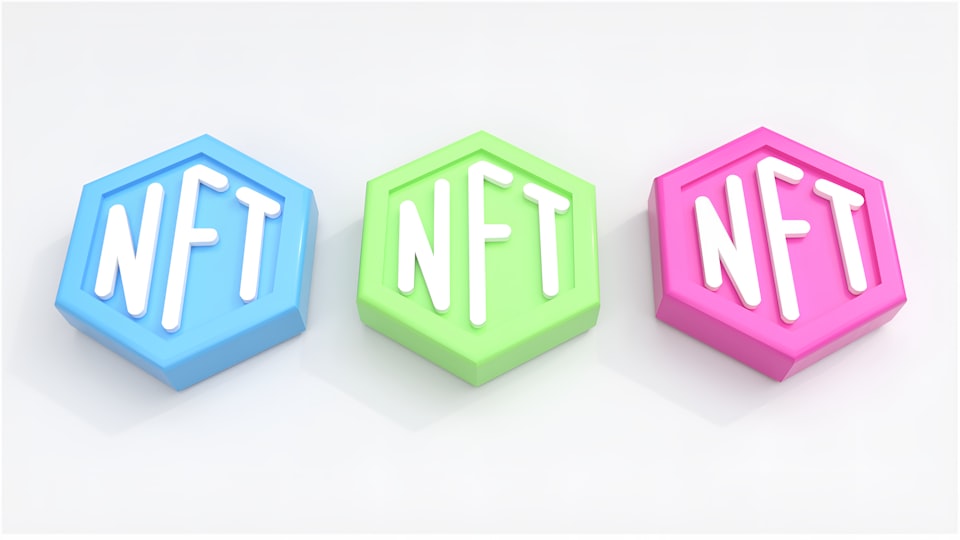Initial Coin Offerings (ICOs) and Cryptocurrency Fundraising: A New Frontier in Capital Formation

Imagine a world where entrepreneurs can raise funds for their innovative projects without the traditional barriers of geographical boundaries, complex regulatory hurdles, or reliance on venture capitalists or financial institutions. This is the world of initial coin offerings (ICOs) and cryptocurrency fundraising, a disruptive phenomenon that has taken the finance and technology sectors by storm.
In this article, we'll explore the intricacies of ICOs and cryptocurrency fundraising, delving into their mechanisms, benefits, challenges, and the potential they hold for revolutionizing the way startups and projects raise capital. Buckle up, because this is an exciting journey into the cutting-edge realm of decentralized finance (DeFi) and blockchain technology.
The Rise of Initial Coin Offerings (ICOs)
Before we dive into the nitty-gritty of ICOs, let's take a step back and understand the driving force behind this innovative fundraising mechanism. The emergence of blockchain technology, particularly with the success of cryptocurrencies like Bitcoin and Ethereum, paved the way for a new paradigm in capital formation.
ICOs took the world by storm in 2017, when startups and projects began leveraging the power of blockchain and cryptocurrencies to raise funds in a decentralized and borderless manner. The concept is simple yet revolutionary: instead of relying on traditional investment channels, projects issue their own digital tokens or coins and sell them to investors in exchange for cryptocurrencies like Bitcoin or Ethereum.
These tokens can represent a variety of assets or utilities within the project's ecosystem, ranging from access to services, governance rights, or even digital representations of physical assets. The funds raised through ICOs are typically used to finance the development, operations, and growth of the underlying project or business venture.
The ICO Process: A Crash Course
So, how does an ICO actually work? Let's break it down into simple steps:
- Project Development: A team of developers, entrepreneurs, or visionaries conceives a project or idea that they believe can benefit from blockchain technology and decentralized applications (DApps).
- White Paper: The team creates a comprehensive white paper outlining the project's vision, goals, technical specifications, token economics, and roadmap. This document serves as the foundation for attracting potential investors and building a community around the project.
- Token Creation: The project develops and issues its own digital token, often based on existing blockchain platforms like Ethereum or Binance Smart Chain. These tokens are designed to serve specific purposes within the project's ecosystem.
- Crowdsale or Token Sale: The team launches an ICO crowdsale or token sale, during which investors can purchase the project's tokens in exchange for cryptocurrencies like Bitcoin, Ethereum, or other accepted digital assets.
- Fundraising and Distribution: The funds raised through the token sale are typically used for project development, marketing, and operational expenses. Once the sale is complete, the team distributes the tokens to investors according to the predetermined tokenomics.
- Project Execution: With the funds secured, the team focuses on executing the project roadmap, developing the promised products or services, and building the ecosystem around the issued tokens.
Benefits of ICOs and Cryptocurrency Fundraising
The appeal of ICOs and cryptocurrency fundraising lies in their potential to democratize access to capital, foster innovation, and disrupt traditional financing models. Here are some key benefits:
- Global Accessibility: ICOs are borderless and open to investors worldwide, eliminating geographical barriers and expanding the potential investor pool.
- Decentralization and Transparency: Built on blockchain technology, ICOs promote decentralization, transparency, and immutability, fostering trust and accountability.
- Early-Stage Funding: ICOs provide a viable funding avenue for early-stage projects and startups that might struggle to secure traditional venture capital or bank financing.
- Community Building: ICOs enable projects to build an engaged community of supporters and stakeholders from the outset, fostering long-term growth and adoption.
- Liquidity and Tradability: The issued tokens can often be traded on cryptocurrency exchanges, providing liquidity and potential returns for early investors.
- Regulatory Flexibility: While regulations are evolving, ICOs can operate in a more flexible regulatory environment compared to traditional securities offerings, at least initially.
Challenges and Risks of ICOs and Cryptocurrency Fundraising
While the potential benefits of ICOs and cryptocurrency fundraising are undeniable, this nascent industry is not without its challenges and risks. Understanding these factors is crucial for both projects and investors:
- Regulatory Uncertainty: The regulatory landscape surrounding ICOs and cryptocurrency offerings is still evolving, with varying interpretations and guidelines across different jurisdictions.
- Fraud and Scams: The relatively unregulated nature of ICOs has attracted bad actors, leading to numerous instances of fraudulent projects, exit scams, and investor losses.
- Volatility and Market Risks: The cryptocurrency markets are notoriously volatile, exposing both projects and investors to significant market risks and potential losses.
- Technical Risks: ICOs and blockchain projects face technical risks, such as smart contract vulnerabilities, security breaches, and scalability challenges, which can jeopardize the project's success.
- Lack of Investor Protection: Many ICOs operate in a legal gray area, lacking the investor protections and disclosure requirements typically associated with traditional securities offerings.
- Hype and Speculation: The ICO craze has been fueled by speculation and hype, leading to inflated valuations and the potential for market bubbles and eventual corrections.
The Evolving Regulatory Landscape
As the ICO and cryptocurrency fundraising industries continue to grow, regulatory bodies worldwide have taken notice, leading to increased scrutiny and the development of new regulatory frameworks. Here's a glimpse into the evolving regulatory landscape:
- Securities Laws: Many jurisdictions, including the United States and various European countries, have begun to classify certain ICOs and token offerings as securities, subjecting them to existing securities laws and regulations.
- Anti-Money Laundering (AML) and Know Your Customer (KYC): Regulations aimed at preventing money laundering and ensuring investor protection are being applied to ICOs and cryptocurrency exchanges, requiring robust AML/KYC processes.
- Licensing and Registration: Some countries have introduced licensing and registration requirements for ICOs, cryptocurrency exchanges, and related service providers, aiming to establish oversight and accountability.
- Tax Implications: Tax authorities are grappling with the implications of ICOs and cryptocurrency gains, leading to evolving tax guidelines and reporting requirements.
- Consumer Protection: Regulatory bodies are increasingly focused on protecting investors and consumers from fraudulent ICOs, market manipulation, and other unethical practices.
While the regulatory landscape is still evolving, it is essential for projects and investors to stay informed and comply with applicable laws and regulations to ensure the long-term sustainability and credibility of the ICO and cryptocurrency fundraising industries.
The Future of ICOs and Cryptocurrency Fundraising
Despite the challenges and growing regulatory scrutiny, the future of ICOs and cryptocurrency fundraising remains promising. As the industry matures, we can expect to see several trends and developments:
- Increased Professionalization: ICOs and token offerings are likely to become more professionalized, with stricter due diligence processes, better governance structures, and adherence to industry best practices.
- Regulatory Clarity and Compliance: As regulatory frameworks become more defined, projects and service providers will need to adapt and comply with relevant regulations, fostering greater investor confidence and legitimacy.
- Emergence of Security Token Offerings (STOs): Security Token Offerings (STOs), which represent tokenized ownership of traditional assets like equity, real estate, or investment funds, are gaining traction and may become a significant component of the cryptocurrency fundraising landscape.
- Decentralized Finance (DeFi) Integration: The integration of ICOs and token offerings with decentralized finance (DeFi) protocols and platforms is expected to expand, enabling new financial instruments, lending, and investment opportunities.
- Institutional Adoption: As the industry matures and regulatory clarity improves, institutional investors and traditional financial institutions may begin to explore and participate in ICOs and cryptocurrency fundraising, further legitimizing the space.
- Innovation and Disruption: The underlying principles of decentralization, transparency, and innovation that drove the rise of ICOs will continue to fuel new developments and applications, potentially disrupting various industries and financial services.
Conclusion
The world of ICOs and cryptocurrency fundraising has ushered in a new era of capital formation, challenging traditional financing models and democratizing access to investment opportunities. While this innovative space has faced its fair share of challenges, including regulatory uncertainty, fraud risks, and market volatility, its potential to drive innovation, foster community engagement, and disrupt industries cannot be ignored.
As the industry continues to evolve, projects, investors, and regulatory bodies alike must work together to establish best practices, promote transparency, and foster a conducive environment for responsible and sustainable growth. By striking the right balance between innovation and regulation, the ICO and cryptocurrency fundraising industries can pave the way for a more inclusive, efficient, and democratized financial ecosystem.
Ultimately, the success of ICOs and cryptocurrency fundraising will be defined by their ability to adapt to regulatory changes, mitigate risks, and deliver on the promises of decentralization, transparency, and innovation. As we embark on this journey into the future of finance, one thing is certain – the power of blockchain technology and cryptocurrencies has unleashed a new frontier in capital formation, and the possibilities are boundless.
The information provided in this article is for educational and informational purposes only and should not be construed as financial advice. Readers are advised to conduct their own research and consult with a qualified financial advisor before making any investment decisions.




